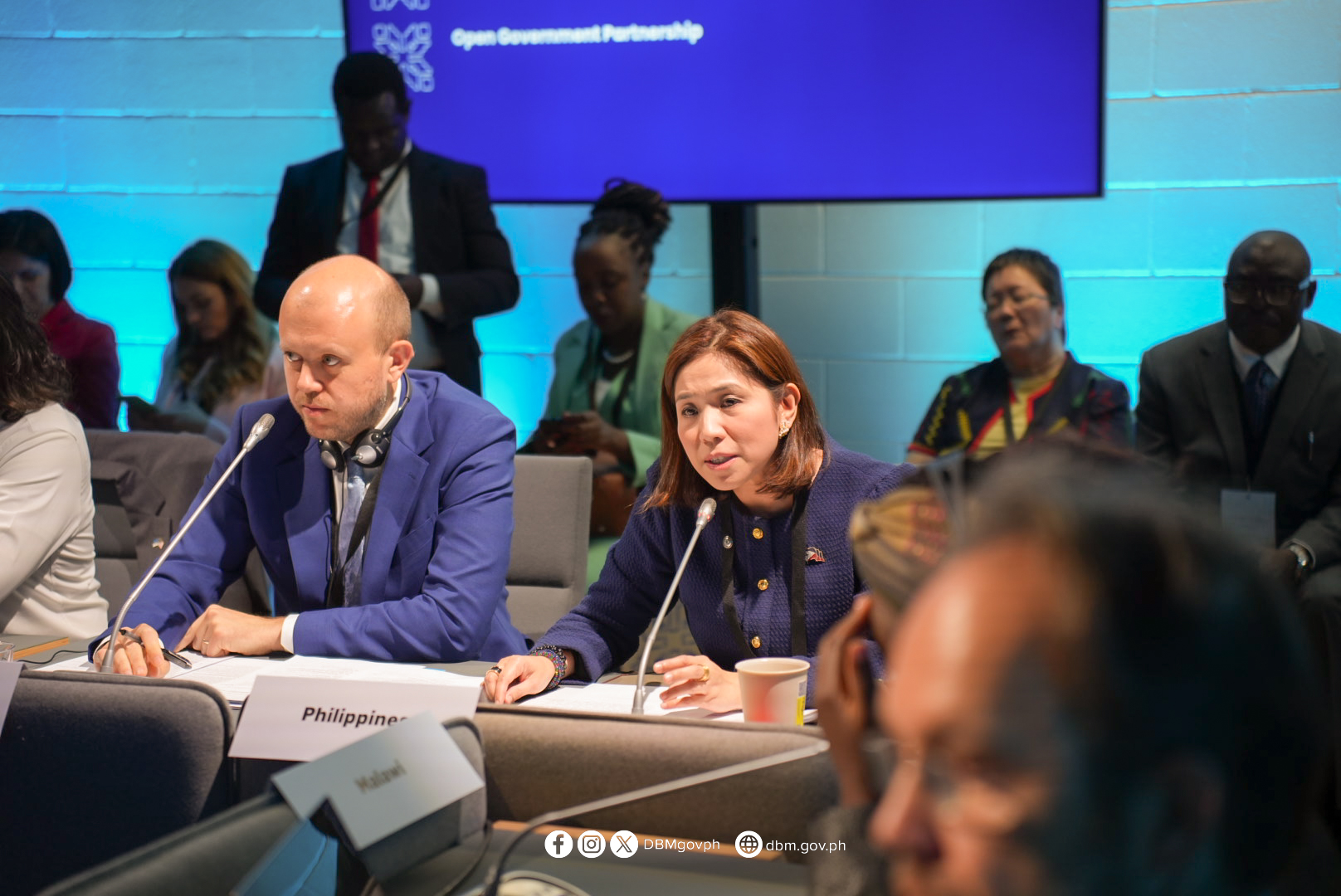
A pleasant noon to our fellow anti-corruption champions and advocates of integrity and accountability!
I come from the South of the Philippines, so Assalamu alaikum wa Raḥmatullahi wa Barakatuh.
I am Secretary Amenah F. Pangandaman, Chair of the Philippine Open Government Partnership. And I am happy and proud to say that we are one of the founding members of OGP. And just to show the magnitude of procurement nationwide, data shows that overall, public procurement represents an average of 13 to 20 percent of GDP.
And the same percentage increased during the time of the pandemic and global expenditure in procurement is estimated at nearly 9.5 trillion dollars and to zoom in, the Philippines–since we have a new Administration, we have a new Medium-Term Fiscal Framework, we will invest 5 to 6 percent of our GDP from now until 2028 to infrastructure spending. And yearly, roughly 45 percent of our national budget is for procurement.
So across the globe and even in the Philippines, public procurement is one of the governance aspects most prone to corruption. A study by the OECD revealed that corruption drains at least 20 percent of the procurement budget. Meanwhile, public procurement contracts that are awarded through a corrupt system may lead to lower quality of infrastructure and public services.
For this reason, delivering transparency in procurement and contracting processes is a pressing concern that merits global attention.
The Philippine procurement system also had its share of controversies in the past. Thus, this new Administration, we significantly advanced open contracting reforms and enriched participatory spaces for improved transparency and accountability in government procurement.
Thanks to these reforms, the Philippine government saved at least USD 12.26 million in 2022. With better procurement strategies and policies, we are estimated to save 26 to 29 percent of our total procurement spending.[1]
Within just a year, we have already made significant improvements in our procurement system. This was possible through three things: alignment with national development goals, strong political will, and collective action.
Our Philippine Development Plan 2023 to 2028, our country’s medium-term socioeconomic blueprint, puts a premium on the transformation of public procurement, among others. This will be achieved through the use of data-driven tools, increasing private sector participation, observing Open Contracting Data Standards, implementing green public procurement, and modernizing the Philippine Government Electronic Procurement System or PhilGEPS. Moreover, professionalizing our procurement practitioners.
Thankfully, our efforts at reform also have the support of our new president, President Ferdinand Romualdez Marcos Jr., who recognizes the need to make government procurement more attuned to our changing times.
Thus, our 20-year-old law on Government Procurement, we will introduce amendments to our law.
In line with our bureaucratic efficiency and digital transformation agenda, the proposed amendments include systems integration for a more seamless procurement experience and the introduction of an eMarketplace feature.
And to further streamline the procurement process for greater efficiency, we are also proposing the mandatory use of our Philippine Government Electronic Procurement System (PhilGEPS). This will leverage technology in the submission and receipt of bid documents.
Moreover, mindful of OGP, our procurement process shall adhere to the principles of open government for increased transarency by mainstreaming public participation and inviting at least two observers—one from a duly recognized private sector and another from our Civil Society, to sit in all procurement proceedings, thus ensuring qual access to information at all stages of procurement.
With the simultaneous efforts of our partners in the private and civil society sectors, leveraging a whole-of-society and whole-of-nation approach, I am confident that we can create a public procurement system that is truly inclusive, sustainable, reliable, and transparent—one that we can proudly put at the heart of delivering public services.
Thank you very much.
[1] MAPS-Assessment-report-philippines-volumeI.pdf (mapsinitiative.org)

